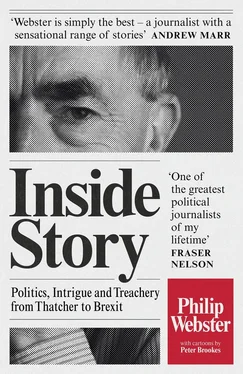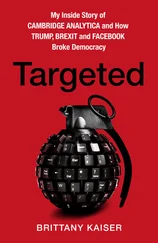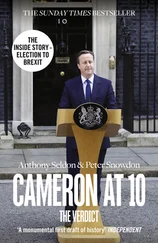Then Gove and Johnson, trying to give the appearance of being an alternative government, announced a series of policies including an Australian-style immigration points system. A ‘Stronger In’ campaign source told me: ‘It cut straight through to voters. Their call for an immigration points system hit the spot. It was simple.’ Claims that Turkey would join the EU also gained huge traction despite constant denials from the Government.
However, the basic mistake in planning meant that the ‘Remain’ campaign felt unable to respond on immigration as the battle reached its final days. A source told me: ‘This was the crime. We had nothing to say. Campaigns have to be fluid and adapt and this one had nothing on immigration and the country clearly felt like “they” were not listening.’
So worried were they that ministers, pressed by the campaign team, considered returning to Brussels for more concessions. Cameron spoke to Angela Merkel, the German chancellor, to take her views on whether there could, even at this stage, be a belated offer on freedom of movement. She was not optimistic and the idea was soon shelved in any case because of fears that such a late move would look panicky and would mean that the ‘Inners’ would be fighting on the ‘Leave’ camp’s turf.
Then came a horrifying turn of events when Jo Cox, a popular Labour MP, was shot and stabbed in her constituency by a man who was heard to shout ‘Britain first’ as he attacked and killed her. It was a tragedy that shocked the nation and the world. The referendum campaigns were suspended and Parliament was recalled to pay tribute to her. The mood of the campaign became calmer and less divisive.
It appeared that the killing might benefit the ‘Remain’ campaign because of the circumstances surrounding it and the late MP’s support for Europe. The polls switched from ‘Leave’ to ‘Remain’ in the final days. Populus, both in its private findings for the ‘Remain’ camp and in its public surveys, produced the most optimistic findings. The misplaced confidence in Number 10 as the referendum approached also meant that the campaign did not use two pieces of ammunition that insiders believe could have had a vital impact during the final days.
I have seen a poster, created by the international advertising agency Saatchi & Saatchi, of a smiling Nigel Farage lying comfortably in bed with the message ‘Don’t wake up having done something you regret.’ It could, in the eyes of key strategists working for the campaign, have been as devastatingly effective as the poster depicting Ed Miliband in the pocket of Alex Salmond, the former Scottish National Party leader, during the 2015 election campaign.

But it was not used because the Downing Street team in the form of Craig Oliver said it was ‘too personal’. Their conclusion was not challenged at the time by the other parties but senior figures have since told me of their huge regret it was not used. A Number 10 insider told me that it was pulled because it seemed wrong to use such a toxic picture so close to the death of Jo Cox. Similarly, an idea to create a nationwide poster with a photo of Boris Johnson in a woolly hat knocking on the door of Number 10 – taken when he negotiated with Cameron before his decision on where to stand in the referendum – and a message advising voters ‘be careful what you wish for’ never saw the light of day. It was considered to be unnecessary, potentially counter-productive and, again, ‘too personal’. Throughout, Cameron had given orders to avoid personal attacks on Johnson.
Strategists also regret that polls showing ‘Remain’ with a comfortable lead were published during the day of voting. It may well have contributed to the growing national feeling that the ‘In’ camp was heading for certain victory and may have encouraged the wave of protest votes against ‘the Establishment’. For days afterwards the airwaves were full of people admitting they had voted ‘Leave’ in the expectation of losing, explaining that they wanted to give a kick to the Brussels machine.
They were not the only ones. Johnson admitted when he declared for ‘Leave’ that he did not expect to win, and sources close to the ‘Leave’ campaign have told me that Johnson privately was never confident. The strong view at Westminster and elsewhere was that Johnson had signed up to ‘Leave’ to boost his own standing with the Conservative parliamentary party and, crucially, with the members who would pick the next leader. One former minister told me: ‘Of course Boris did not expect to win and he did not want to win. A narrow victory for Cameron would have suited him better than a Brexit for which he and no one else had prepared.’
At 10 p.m. as voting closed, ‘Remain’ thought it had won and started briefing why. Farage conceded prematurely; Michael Gove went to bed believing he had lost. Then came the result from Sunderland which showed that the ‘Leave’ vote was far higher than expected in that Labour area. It was not a rogue outcome and was matched as further results came in. Farage withdrew his concession. In Number 10, Cameron knew that his gamble had failed and prepared his resignation speech.
The essay-crisis PM got through until 2016 but then the Great Examiner, the British people, caught up with him. Now Theresa May is picking up the pieces.
Cameron got it wrong. It will be years, perhaps a decade, before Britain knows for sure whether it has benefited or suffered from his mistake.
Конец ознакомительного фрагмента.
Текст предоставлен ООО «ЛитРес».
Прочитайте эту книгу целиком, купив полную легальную версию на ЛитРес.
Безопасно оплатить книгу можно банковской картой Visa, MasterCard, Maestro, со счета мобильного телефона, с платежного терминала, в салоне МТС или Связной, через PayPal, WebMoney, Яндекс.Деньги, QIWI Кошелек, бонусными картами или другим удобным Вам способом.












